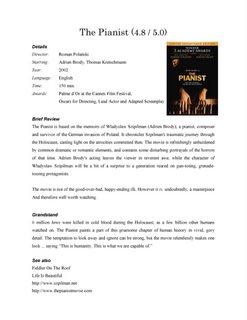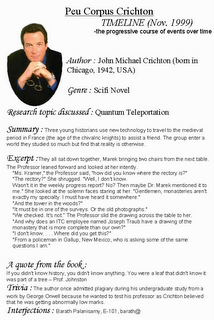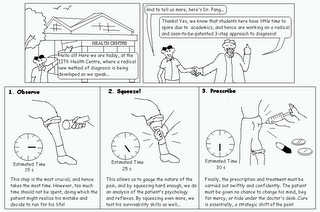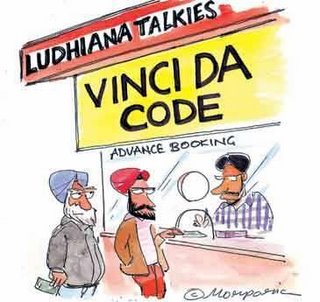Fifteenth Issue
Issue 13
Co-curricular activities have always been an integral part of my schedule. Be it sports or any other activity, I have always participated to the best of my abilities. I never ventured into politics and hence this was my maiden attempt. It is not out of ‘want’ that I became the president; rather it is the faith of our residents and the ‘will’ to serve the Hall, which eventually translated me into being the president. I am thankful to the wholehearted support provided by the Junta, both during the time of election and for the entire tenure.
How did you feel on the first day as a hall president?
I am honored to be the President of Hall-4. Initially, it was a bit difficult with the vacant post of the Chairman, Mess Committee and the Hall Day celebrations hovering over our head. Moreover, we (the HEC) were new to the system and hence took time to adjust. I am particularly thankful to the former presidents, Mr. Tony Jacob and Mr. Ramesh Kumar Sonkar who sailed us through these turbulent times.
What are the official/unofficial assignments of the President?
The President is the convener of the HEC and the member of the Accounts Committee. He shall monitor the day-to-day activities, overall administration and security arrangements of the Hall. He is also the ex-officio member of the Hall Management Council (HMC), Committee of students for Hostels Affairs (COSHA) and any other relevant body where the hall needs to be represented. President is an official post, though unofficially he shall be concerned with the general well being of the residents.
Now that you have completed your tenure, how many promises have you delivered?
I never had any tall claims or big promises. My primary aim was to continue with the development initiatives together with suitable up-gradations wherever required. There are certain long-term concerns and certain issues, which needs immediate attention. We tried our best to redress urgent matters and push forward certain concerns that, I believe, will be beneficial in future.
What are the pros and cons of being the President of Hall-4?
The President of Hall-4 is a responsible post not only in the hostel but also in the Institute. People look at you with admiration and expect accountability. A proper balance needs to be delivered. You are responsible for yourself as well as for the residents’ conduct. At times, it may be highly demanding and difficult. Given the time management and support of HEC members together with other residents, we cruised through.
Were you able to uphold ethics and at the same time satisfy the demands of both the HEC and the Junta?
I guess a part of this question is answered in the previous questions. Furthermore, the HEC tried its best to deliver what the residents demanded.
One adjective to describe the nature of work you did
A President’s responsibility lies in monitoring and management. I tried to sustain the efforts of previous HEC and its sub-committees together with accommodating and assimilating the views of the current HEC. Cooperation remains the basis of such an act. I thank the outgoing HEC for its efforts and wish the new HEC the very best.
Barath Palanisamy
E – 101/4
_________________________________________
Arun Raghavan
arunsr@, B-308
Pratidhwani: A first hand interaction experience
As a result, I laid low for a while and observed what Ankur and his mates were up to. The kind of articles they were looking for and the popular demand. I have seen through many college and school magazines and there were pretty stereo-typed articles in them. I was initially apprehensive about the same kind of articles being received for the wall magazine as well.
My apprehensions were proved wrong when I saw articles which were more relevant to the emergent scenarios and situations e.g. reservations, marches, suicides and what not. In a quest to do something different, I posted a poem which I had written long time back (about 10 years), to see if the junta really read the magazine. I did get a few feedbacks. I did a bit of advertisement too, marketing myself to people for reading my creation.
I initially thought of putting forth ghettoism, an issue which is not only a problem in our hall, but extends its venom across the campus. To be politically correct, I wrote of issues, which I knew existed, and were disturbing in the campus, with reference to the community I belong to. The bengali community, especially, has been singled out in the past for intentionally ignoring and not inviting other communities on several occasions (Invitations are only written in Bangla). Tuhin Pal, surprisingly aware of the issue, let the article go through unchanged.
One fine morning, Sathyaraj caught hold of me in the mess and asked me whether I would be able to write on the mess. He might have overheard some of my sarcasms on the working style of mess workers some time. I decided to give it a try. Believe me, I was so peeved on the mess issue, that I took me no longer than 30 minutes to complete the article and send the same to the editorial desk. Fortunately enough, it was accepted without any significant changes.
By this time, people had started gathering near the wall magazine to read the articles and Sathyaraj often kept giving me feedback on how well the article on the mess has been received by the Hall 4 junta. It only made me feel more energized to write on various other issues. I, in parallel, had started posting the same articles that I felt good about, on my blog.
At the end of the year I did try something cheeky. On my own, I took up the issue on how, the workers in the garden were lolling in the sun, leaving the grass to be inundated. The old volleyball court (beside the C / D blocks), has been repeatedly planted with grass and inundated with water, a number of times. This practice usually leaves the ground patchy and the grass dead. The roots of grass are fibrous and continuous inundation causes them to rot. It actually shows that not only we have a lack of trained gardeners in the campus but also a lack of scientific thinking. I therefore took a few pictures and made a poster out of them. I mailed this to the editorial board. But alas, it didn't appear owing to the winter vacations in the campus.
In all, this year emerged as a creative year for me. Kudos to the team for putting up such a good work and I hope sufficient funds are sanctioned by the HEC Hall 4 to bring out a consolidated and printed issue out in the form of a magazine.
shudh@, PhD CE
Editor's Choice Top 100 Books

 ________________________________________
________________________________________















